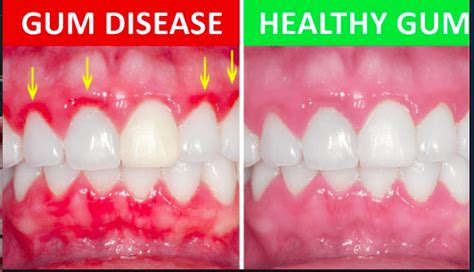Over Cleaning Teeth: Damages Your Gums
The pursuit of a perfect smile can sometimes lead individuals down a path of over-enthusiastic oral hygiene practices. One such practice is the over-cleaning of teeth, which, although stemming from good intentions, can have detrimental effects on gum health. Gums, the soft tissues that surround and support the teeth, play a crucial role in oral health. When the Cleaning process goes beyond what is necessary or recommended, it can lead to gum damage, among other issues.
The Anatomy of Gum Damage from Over-Cleaning
Understanding the structure and function of gums is essential in grasping how over-cleaning can cause damage. Gums or gingiva are made of dense connective tissue that provides a seal around the teeth, protecting them from bacterial invasion and physical trauma. This tissue is sensitive and requires a gentle, yet thorough cleaning to maintain health.
Over-cleaning, often characterized by excessive force, inappropriate tools, or overly frequent cleaning, can disrupt this delicate balance. Here are some ways in which over-cleaning can harm gums:
Recession: Aggressive brushing can wear away the gum tissue, leading to gum recession. This exposes more of the tooth and even the root, increasing sensitivity and making the tooth more susceptible to decay.
Inflammation: Overuse of certain oral care products or techniques can irritate the gums, leading to inflammation, redness, and swelling. If this inflammation is not addressed, it can lead to more serious conditions like gingivitis or periodontitis.
Periodontal Pockets: Deep cleaning or improper use of dental floss can push bacteria and debris further under the gum line, creating periodontal pockets. These pockets can become breeding grounds for bacteria, leading to further inflammation and potential tooth loss.
Recognizing the Signs of Over-Cleaning
Identifying the signs of gum damage due to over-cleaning is crucial for early intervention and prevention of further damage. Some common signs include:
Bleeding: Gums that bleed easily or consistently during or after brushing or flossing can be a sign of over-cleaning or underlying gum disease.
Sensitivity: Exposed roots due to gum recession can make teeth highly sensitive to temperature changes, sweets, or even air.
Redness and Swelling: Inflamed gums appear red, swollen, and may feel tender to the touch.
Bad Breath: Inadequate or overly aggressive cleaning can lead to the accumulation of bacteria, causing bad breath (halitosis).
Practical Steps to Prevent Gum Damage from Over-Cleaning
Preventing gum damage requires adopting a balanced and informed approach to oral hygiene. Here are some practical steps individuals can take:
Brush Correctly: Use a soft-bristled toothbrush and a fluoride toothpaste. Place the toothbrush against the teeth at a 45-degree angle, where the teeth and gums meet. Gently move the brush back and forth in small circular motions, covering all surfaces of the teeth.
Avoid Over-Brushing: Brushing more than twice a day or using excessive force does not equate to cleaner teeth. It can lead to gum recession and tooth wear. Stick to the recommended brushing frequency and gentle technique.
Use the Right Tools: Avoid using hard-bristled brushes, abrasive toothpaste, or household cleansers, which can damage gums and tooth enamel.
Floss Carefully: While flossing is essential for removing food particles between teeth and under the gumline, it should be done gently. Curve the floss around the edge of each tooth in a “C” shape, sliding it up and down against the tooth, being careful not to snap or force the floss under the gum.
Regular Dental Check-Ups: Regular visits to a dentist can help in early detection and treatment of gum problems. Dentists can also provide personalized advice on oral care techniques tailored to individual needs.
###Conclusion
While maintaining good oral hygiene is essential for overall health, it’s equally important to do so in a manner that protects the gums and other oral tissues. By being aware of the risks associated with over-cleaning and following a balanced, informed approach to oral care, individuals can enjoy healthy gums and teeth for years to come.
How often should I brush my teeth to avoid over-cleaning?
+Brushing your teeth twice a day is generally recommended. Over-brushing, or brushing more than this, can lead to gum damage and tooth wear. It’s about quality over quantity - ensuring each brushing session is thorough yet gentle.
Can I use a hard-bristled toothbrush for a deeper clean?
+No, hard-bristled toothbrushes are not recommended. They can cause gum recession and damage to the tooth enamel. Soft-bristled toothbrushes are gentler on gums and still effective at removing plaque and bacteria when used correctly.
How can I prevent gum recession if I’ve already started to notice it?
+If you’ve started to notice gum recession, it’s essential to visit a dentist. They can provide a professional cleaning and advice tailored to your situation. Adjusting your brushing technique, using a desensitizing toothpaste for sensitive teeth, and avoiding further irritation can help prevent further recession.

